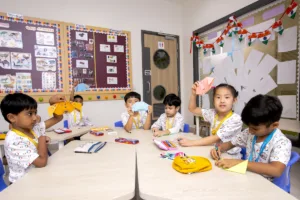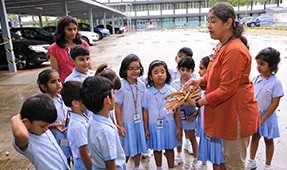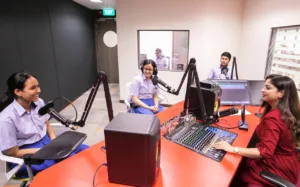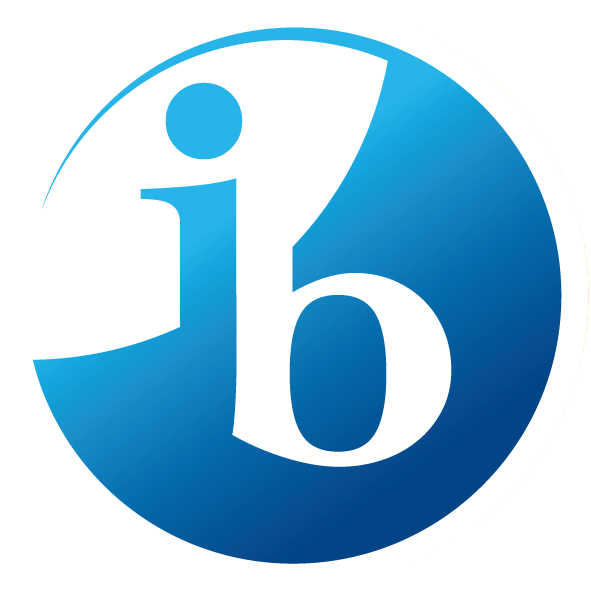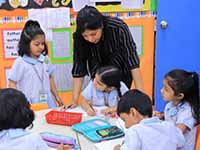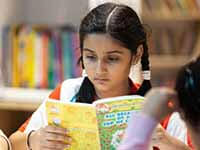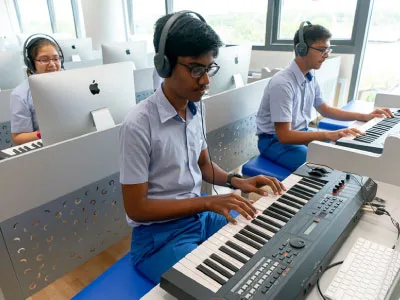Reading is an essential skill, one that your child needs. Better reading comprehension, for instance, sets a child up for success later in life. It is also linked to improved emotional and intellectual development in children.
It also helps with the child’s communication skills. There’s also the fact that reading for fun brings kids many benefits, one of which includes much-needed escape.
Also, reading boosts creativity and imagination in kids, which will help them to succeed in a top Singapore school. Given all these reasons and more, you want to make sure your child’s reading skills improve.
At What Age Should a Child Read Fluently?
Most kids read fluently around ages 8 and 9. By third grade, most kids can read fluently, but some may need extra help if they struggle with reading comprehension or if English is their second language.
What is the Most Important Reading Skill?
The most important reading skill is decoding. Decoding is the ability to translate a series of letters into their appropriate sounds and blend them together to produce words that can be understood.
The ability to decode words is very important, it allows readers to read as many different words as possible. It enables readers to comprehend text at a basic level.
Without decoding skills, readers cannot move through the text quickly or efficiently and they will not be able to process what they read as easily.
7 Tips to Improve Reading Skills
1. Set Up a Routine
Is your schedule filled to the brim every day? You’ll need to set aside time to develop a daily reading routine for your kid. You could block off a certain hour of the day so you and your child can read a story together.
Reading a story together isn’t just a fantastic way to bond with your child—though that is indisputably one of the best handy side-bennies of the arrangement.
It also helps increase your child’s reading abilities by learning new words, adding to the kid’s vocabulary, improving reading comprehension, and getting more familiar with words.
2. Correct Your Child
Reading together through your child’s lessons or books will help your child improve their academic scores at primary school.
If your child is having a little trouble developing those reading skills, continuing to work with the kid can make a world of difference.
When you correct how your child reads or pronounces a difficult word, you help your little one prepare for school. But make sure that when you correct your child, you also know how to build up his or her self-confidence.
Providing your child with feedback is important but do it in a way that won’t crush the child’s self-esteem and confidence. If you do, that will have long-term consequences and emotional trauma for the child.
Those problems don’t only affect your kid’s emotional well-being but also your little one’s mental health.
3. Encourage Reading
Kids who grow up readers, often have one thing in common: they found stories they loved. Make that happen for your child, too.
Help your little one find books that they love. That will instil a love of reading. You might also want to give your child the freedom to choose the reading material.
For instance, it could be a fantasy or horror story. It could be a sci-fi tale or a love story. It could be a fairytale. With so many options out there, you’re sure to find books that your child will fall in love with.
4. Act the Stories Out
There’s always a possibility that your child is an auditory listener. If that’s the case, then consider having your child act out scenes from the story.
That will not only help your kid remember those lessons better but acting the stories out boosts your child’s creativity as it forces the child to think about the scenario and figure out the most appropriate response to the situation.
Also, acting out stories is fun. That level of enjoyment and fun means that the child is more likely to come out of their shell.
If your child isn’t sociable or has trouble being comfortable in social settings, then acting out stories—modulating your voices, playing characters, and much more—can help your child improve his or her self-confidence. That develops your child’s communication skills, too.
Also Read: What are the facilities that children get in a playschool in Singapore?
5. Introduce Interactive Stories
Make it easy for your child to read. Provide access to a ton of reading materials. Ask your child what they like.
This is also an excellent time to allow your child to read interactive stories online or using apps. There’s a ton of fun to be had in these stories. They don’t just improve your child’s reading skills; they also contribute to your child’s cognitive development.
Interactive games are fun as well. Allowing your child to associate reading with fun can help eliminate any anxiety or insecurity that your child might have over reading. Those anxieties could be why your kid has such a hard time remembering or pronouncing some simple words in his or her vocabulary.
6. Ask Questions
Toss open-ended questions at your child. Many choose questions that kids can answer with a simple yes or no. But that doesn’t help the child’s language development.
By asking open-ended questions, though, you help your child use more words. That familiarity can help your child improve his or her reading skills, too. It’s easier to use full sentences when you train your child to express their thoughts with open-ended questions.
7. Let Your Child Tell the Story
If your child loves a particular story, then do a bit of acting and purposely read the words or sentences the wrong way.
If your child is paying attention, they will react and ask you to reread those sections. If you’re feeling particularly playful, then ask your child to read it aloud for you because you’ve already forgotten.
You might think your child is too smart to fall for this trick. But most kids end up reading the words out loud, which helps them improve their reading skills. If your child’s main problem is motivation, if they struggle to stay motivated in reading, then this will do the trick.
Additional Tips to Improve Reading Skills
8. Go Beyond Books
What better way to let your child learn about the world at large than to encourage your little one to read about nature and the universe?
There’s chock full of data online beyond your child’s textbooks. You might want to start with the school-approved titles. But that doesn’t mean you should limit your child to those options. Allow your child to choose some of those reading materials, too.
9. Know That Every Child is Different
That means not all kids perform and develop at the same pace. They don’t even absorb and retain information in the same way. That means your child might be having a tough time improving his or her reading skills now.
But with continued practice or by exploring a range of different learning approaches, you might find the learning style that works for your little one.
The key is not to make your child feel bad or make them feel less intelligent or academically capable than their peers. Remind your child, too, that each one develops at his or her own pace.
10. Encourage Your Child
Your support continues to be a huge factor. Parental support has a positive impact on a child’s reading skills. By showing your child that you care, that you’re there, and that you can provide the help and guidance they need, your child won’t have to fear being left behind.
11. Talk to a Specialist
Delays in reading, communication, and speech, though, could be indicative of a mental condition or learning disability.
It’s a good idea to consult with a specialist to find out if there’s something wrong. Getting to the bottom of the problem will mean finding the right way to help your child if it does turn out to be a learning disability.
The tips can prepare your child much better for the level of reading attention and skills needed for primary school.



